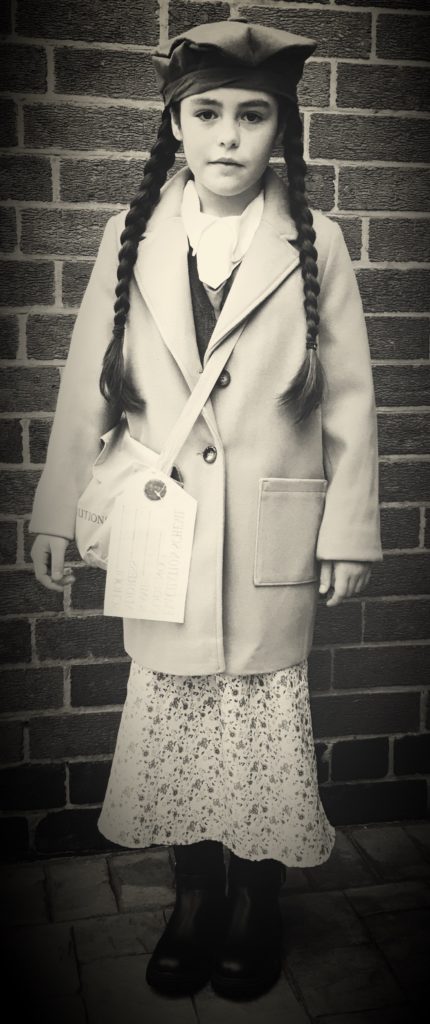
As part of our WWII project this term, Year 5 visited Beaumanor Hall in Leicestershire.
During the War, Beaumanor Hall was retained by the War office and used as a centre to translate messages being sent by the enemy to each other. Beaumanor Hall was a secret place to listen in and de-code messages from Germany.
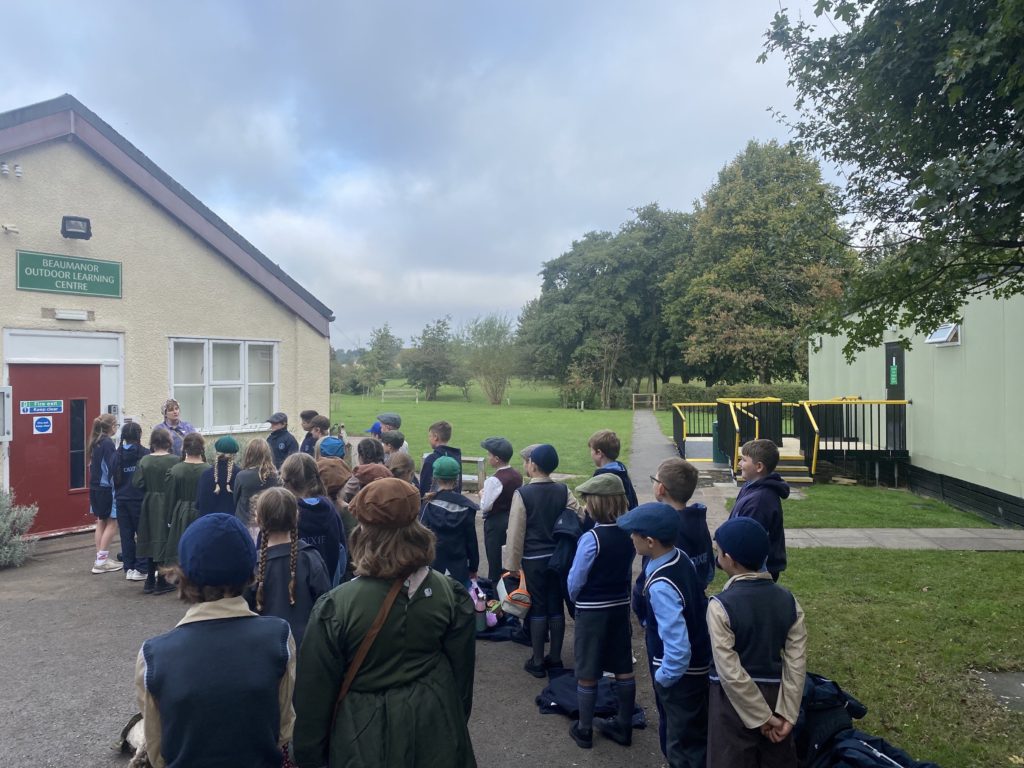
Clothes and Costumes
Some of Year 5 dressed up as evacuees. It was great fun!
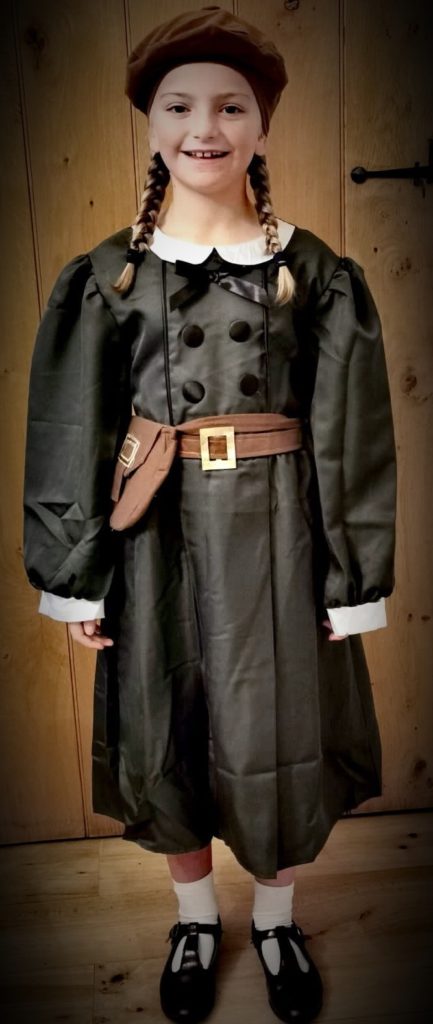
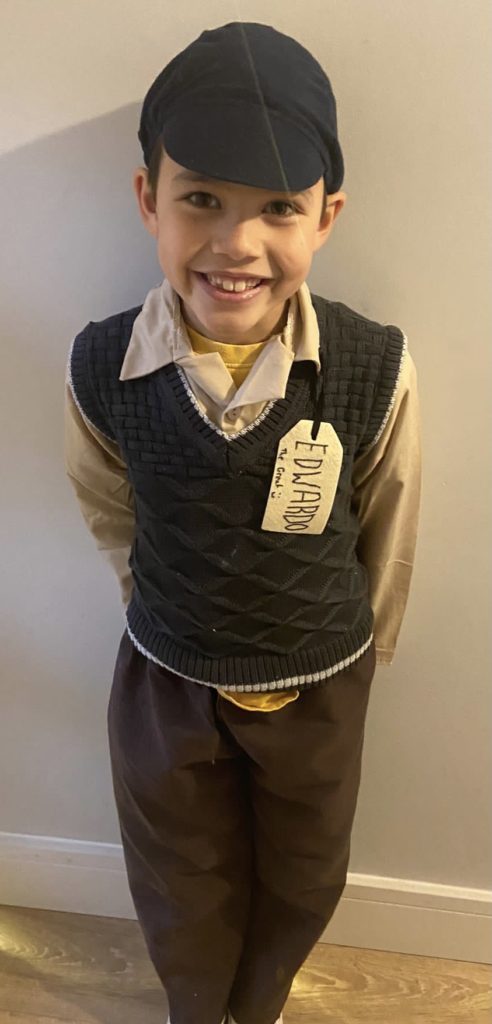
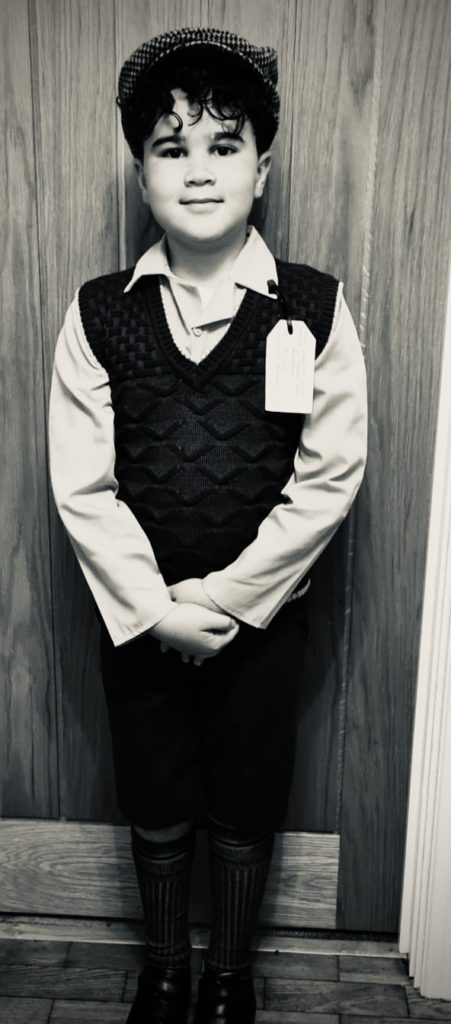
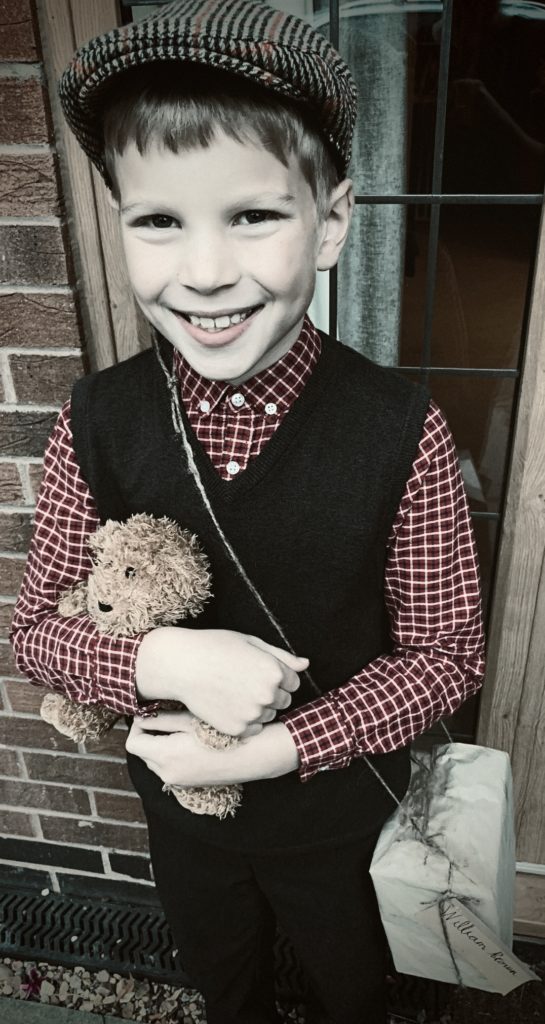
Question: “Did you like the clothes worn by children during WWII?” “Were they warm or cold clothes?”
Bella Rogers: “I liked the clothes because they were smart and they were old. They were warm to wear”
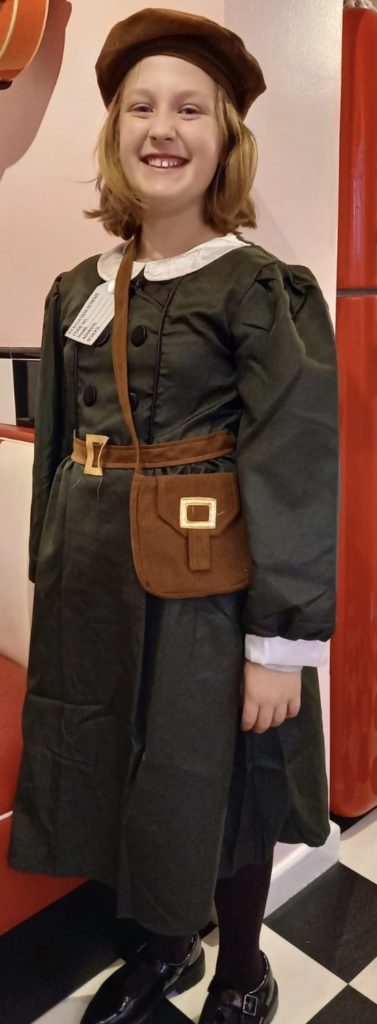
Question: “Why did the evacuee children wear I.D. tags?”
Elodie Noyon: “Because you had to imagine that you were in 1939.” “The tags told everyone who they were”
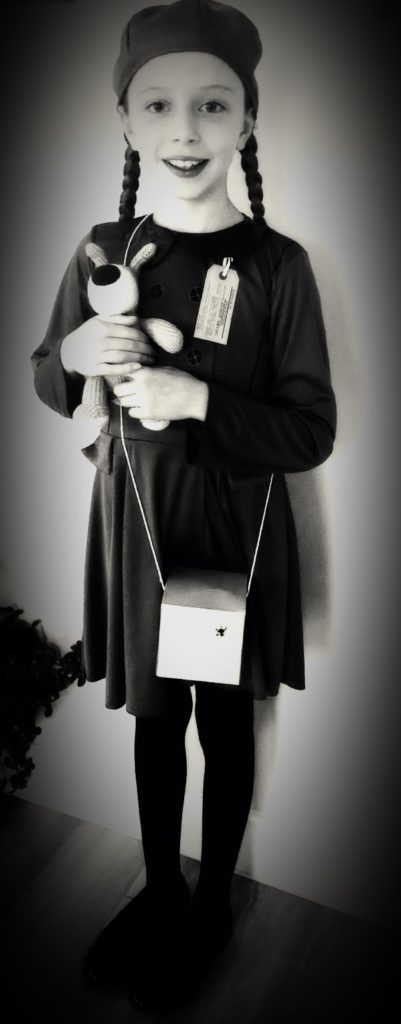
First Impressions
Our first impression of Beaumanor Hall was that it was huge in size, with very old walls and rooms but lots of gardens and outdoor spaces.
We were met by a lady called “Victoria” who was our guide for the day. Victoria was dressed as a factory worker and her role was to look after evacuee children as they arrived at the Hall. She said this is how the children were met in WWII as they left home.
When we entered the main building, we were asked questions to test if we were German spies by checking our accents and how we spoke certain words.
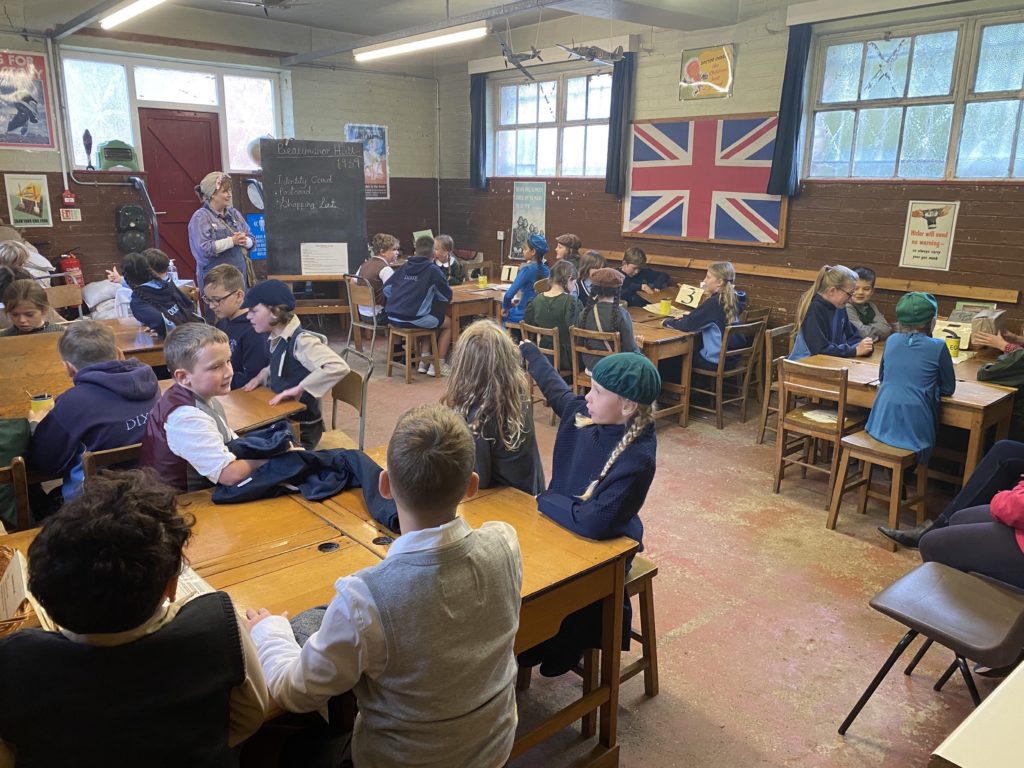
Question: “The Evacuee Children during WWII had to leave home, how do you think they felt? How would you feel?
Georgia Holder: “I think very sad & depressed because they left home with no one to rely on or comfort them”
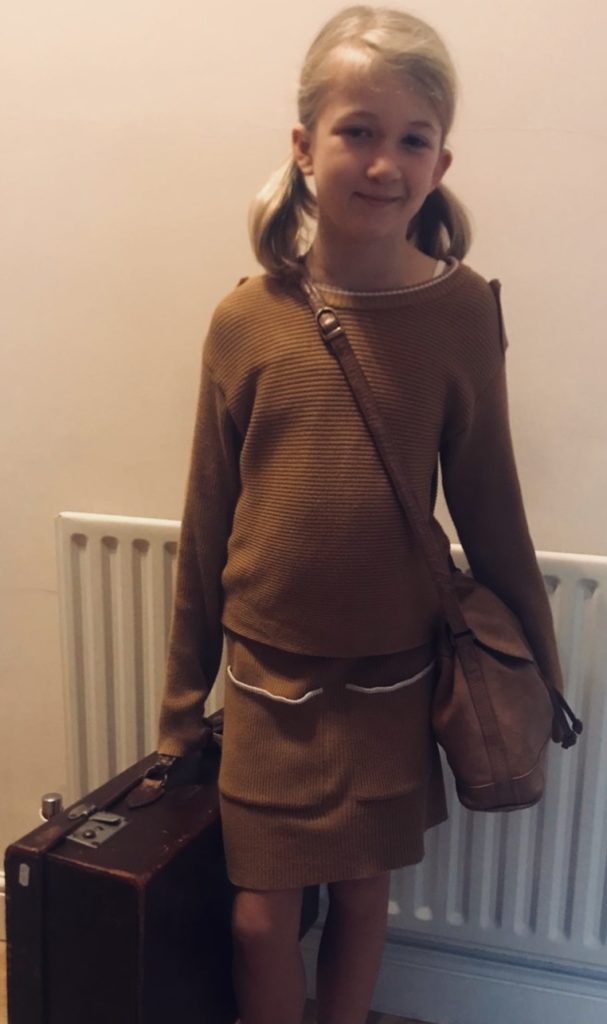
Food Rations:
Food was limited and rationed, so there was little to chose from during WWII. Small sandwiches made of Ham or Jam alongside an apple or pear were some of the food items available.
Portions were small and everyone shared. Lots of vegetables and fruit were grown to bring in more food for mealtimes.
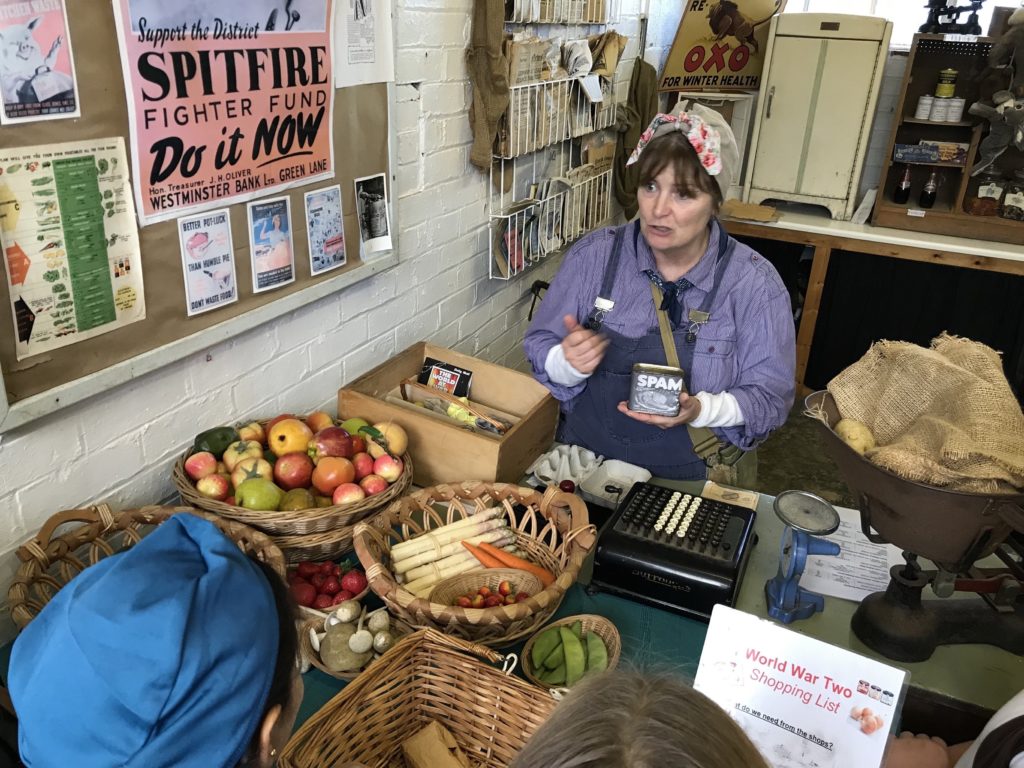
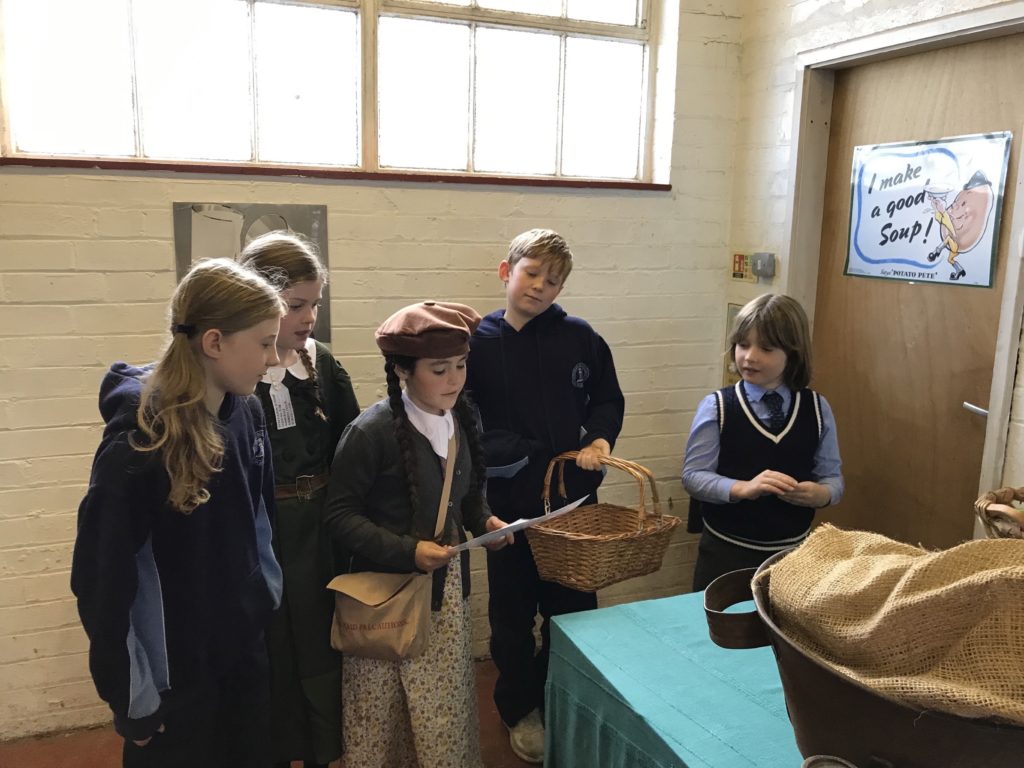
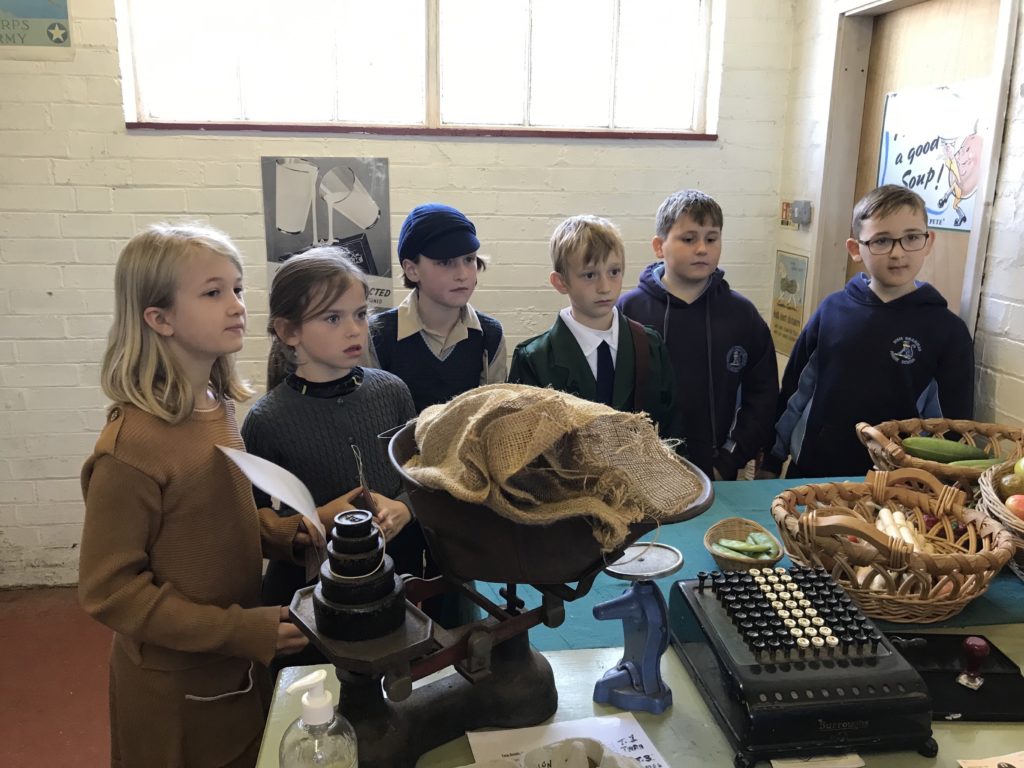
Question: “What was a Ration Book?” “What was it used for?”
Bea Nightingale: “A Ration Book is a little book used for food and clothes. Food was the most common kind of ration book.” “It makes sure everyone has a fair share of food and clothes. There were three main ration books. One for over 16 year olds, one for children and one for nursing or pregnant women.”
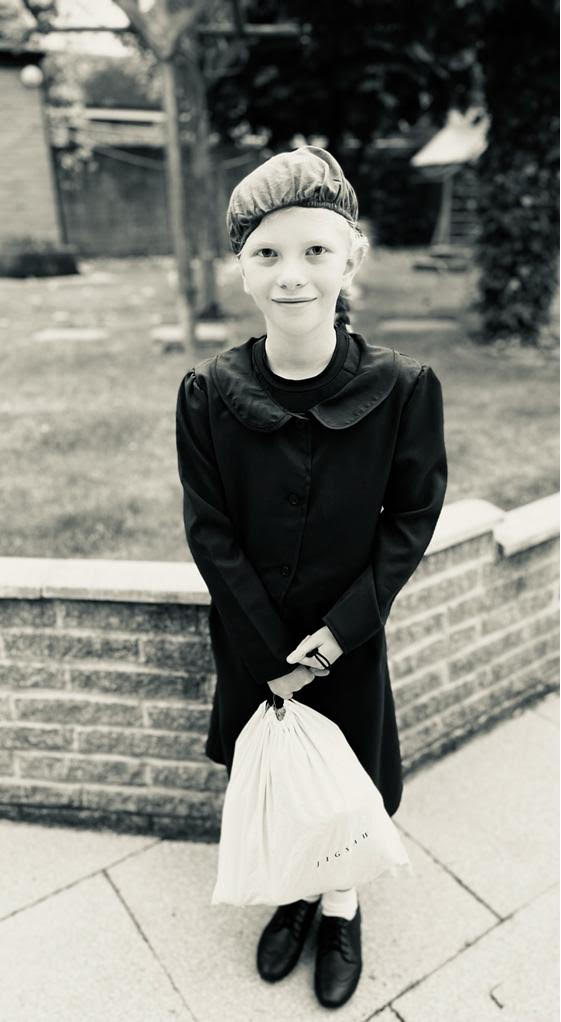
The De-coding room
The De-coding room was so much fun! We were taught how German messages were De-coded using Morse Code.
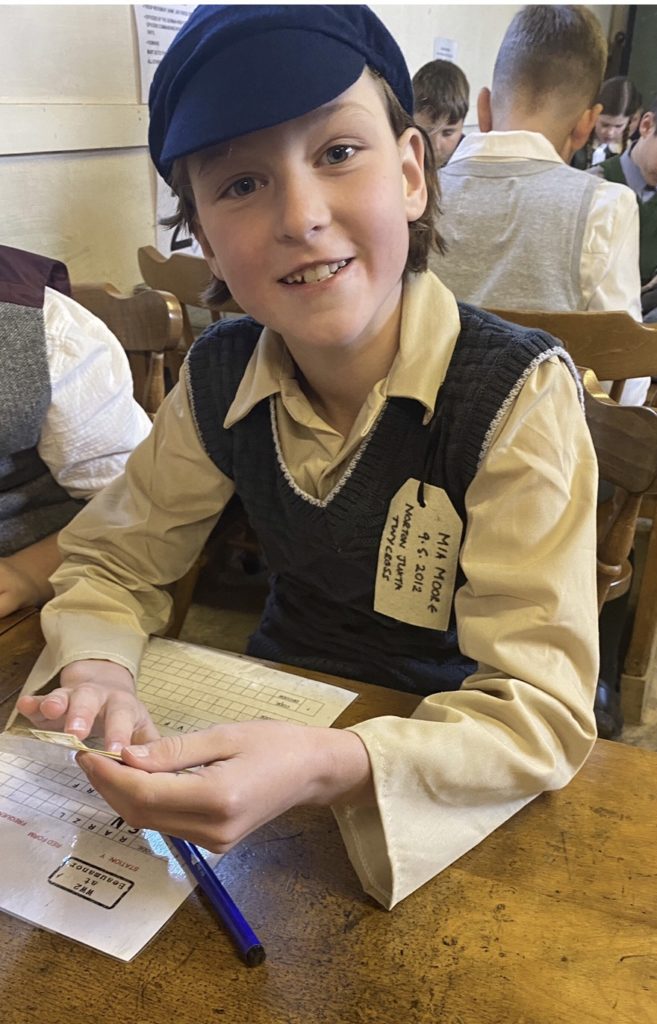
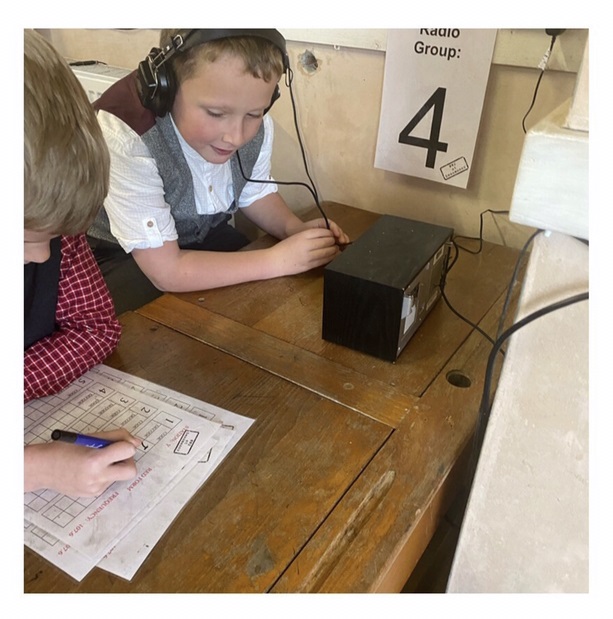
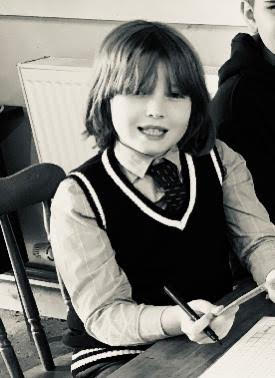
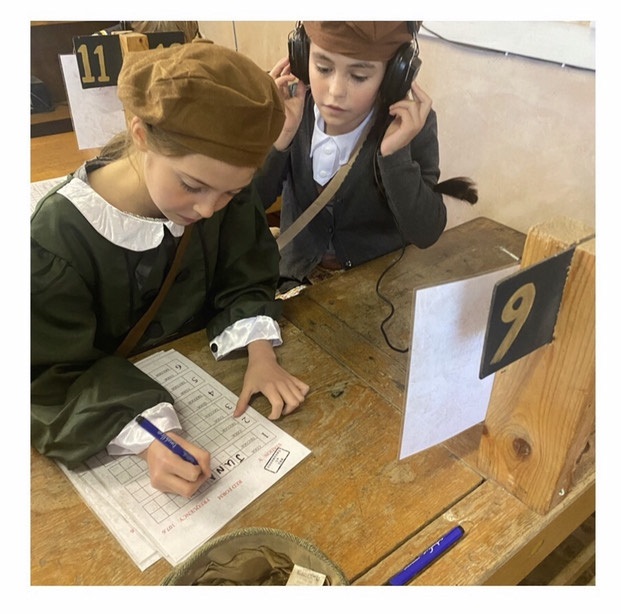
Question: “What is De-coding, and what was it used for?”
William Fay: “De-Coding is used for Britain’s finding out about the Germans plans but if you make a mistake, it could be crucial!”
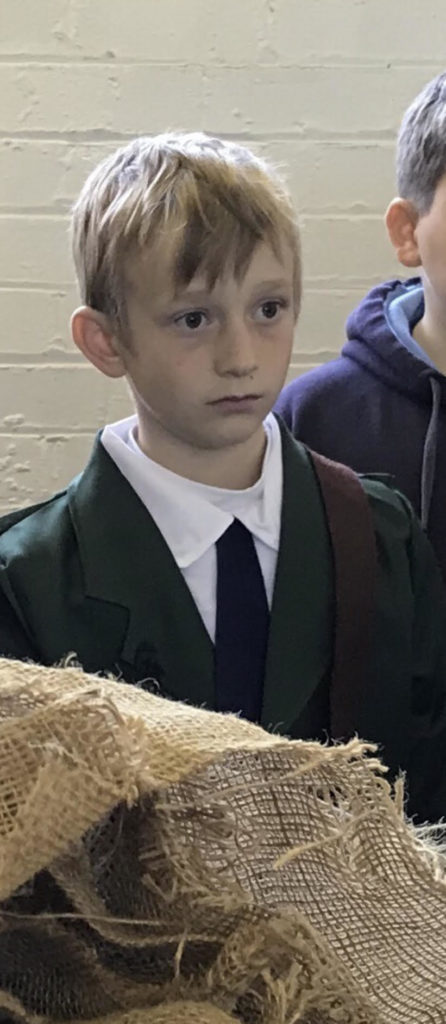
Question: “What did you learn about Morse Code?” “What was it used for?”
Henry Holdcroft: “I learned that Morse 1 code is a light system.” “Morse code is a different language.” “Morse Code is where you get messages across.”
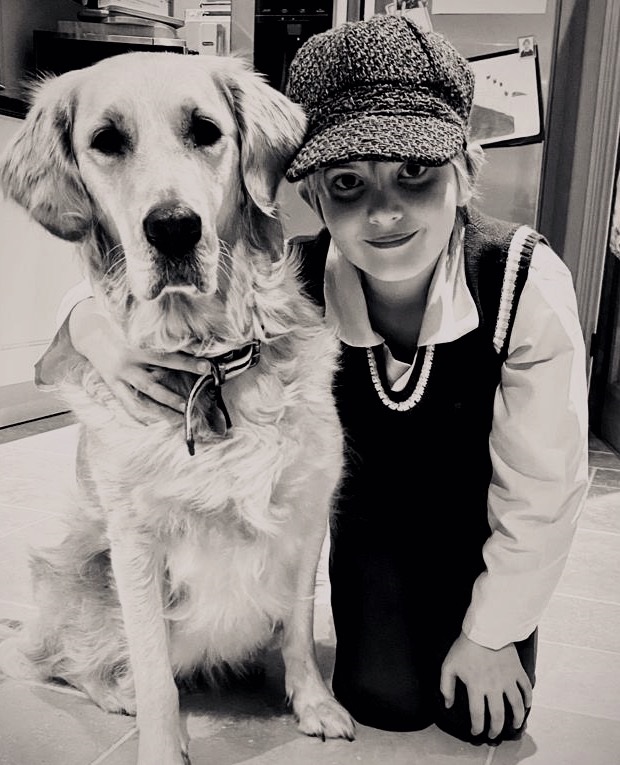
Lunchtime
Food was wrapped in paper and tea-towels and drinks were drank from glass bottles as plastic wasn’t available.
During our lunch break at Beaumanor Hall, the Air Raid Siren started to sound!
Question: “When the air raid siren sounded, how did you feel?”
Kianna Naik: “I felt so scared even knowing that is wasn’t real. The noises were nice at first then the lights started flickering.” “I was already scared because I hate cellars!”
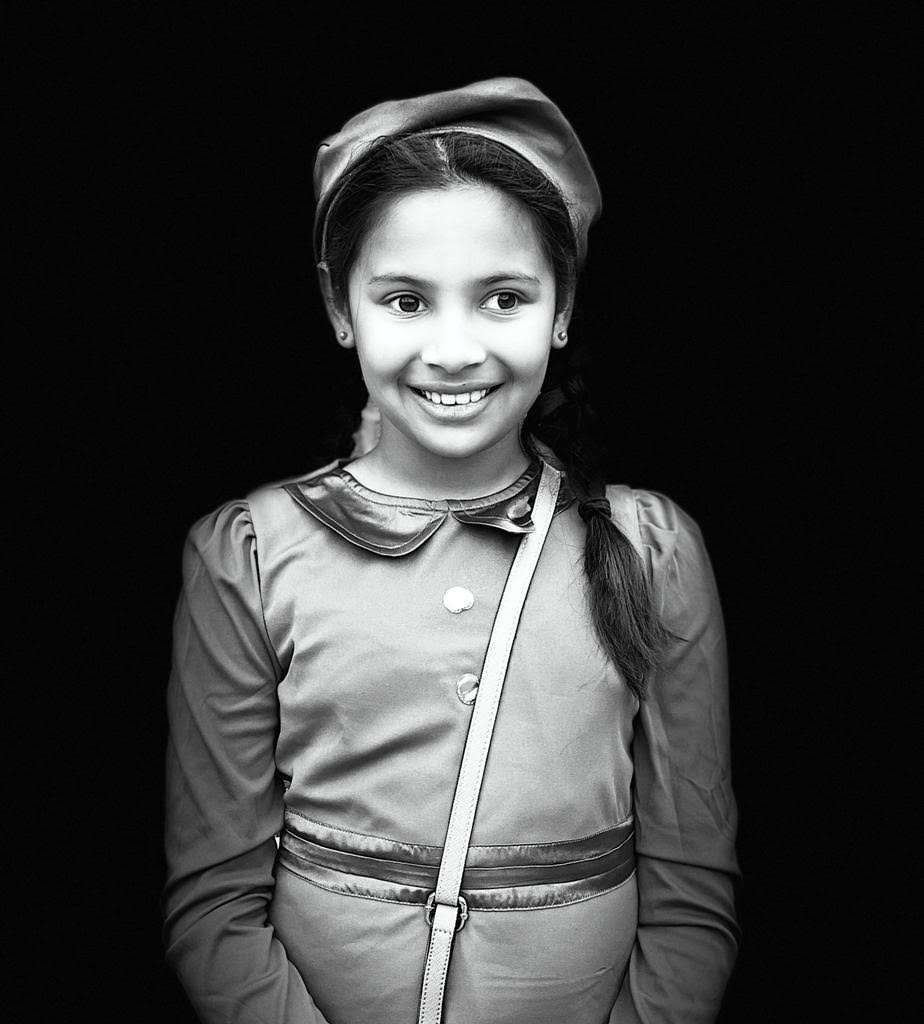
Question: “When you went into the air raid shelter, how did it make you feel?” “Can you describe what it was like?”
Preston Cropp: “When I first went into the air raid shelter, I felt a little bit scared and when the noises went off, I actually felt like I was in the War in an air raid shelter.”
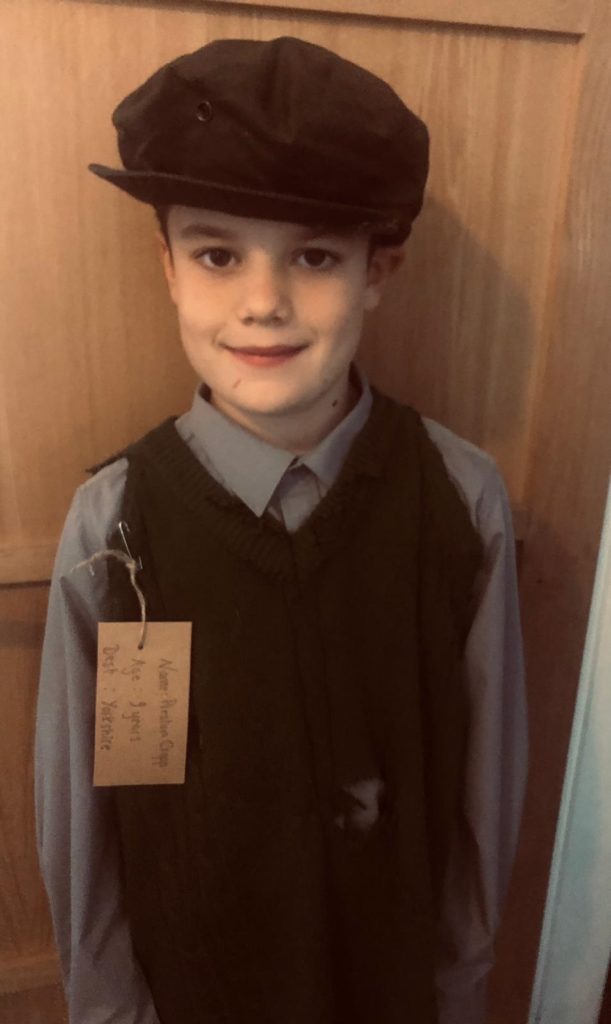
Sounds from the Shelter
While we were in the air raid shelter sounds from the War were played.
Question: “During the trip, you had to listen to different sounds, such as sirens and bombs dropping. How did the sounds make you feel?”
Sophia Stobie: “I felt sad, scared, worried, petrified, like I was going to faint.” “It was really realistic though!”
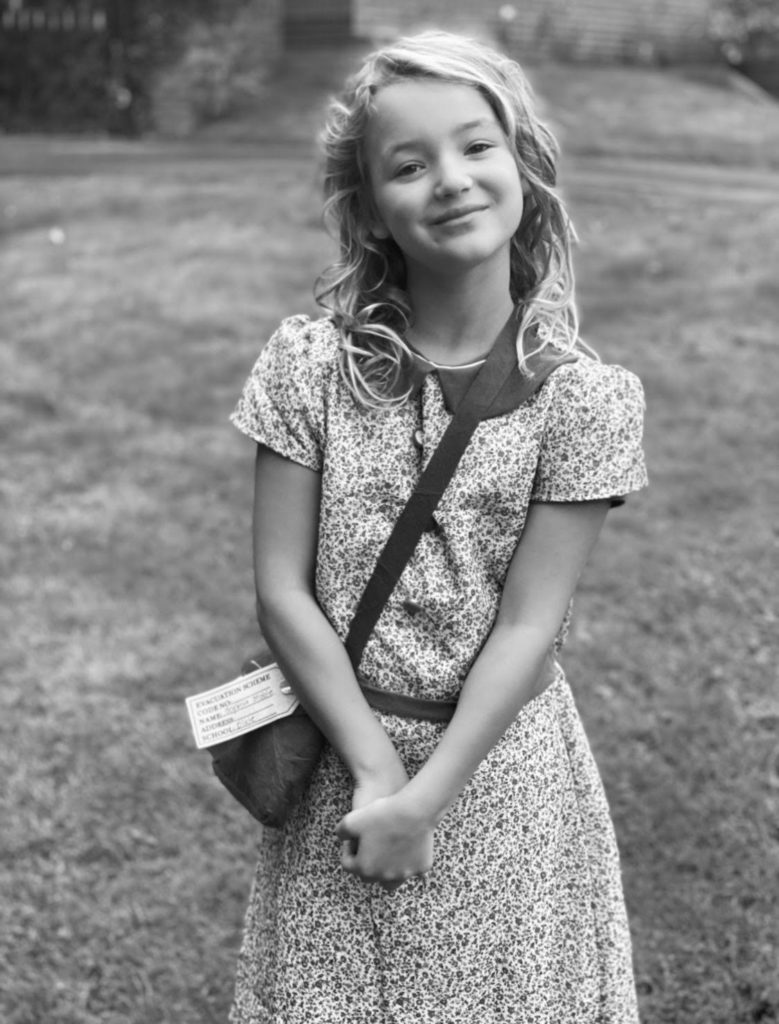
Gas Masks
During the War everyone carried a Gas Mask in a box or bag.
Question: “What did a gas mask look and feel like?” “What was it used for?”
Vanya Branson: “A gas mask was a mask that was used during raids and gas attacks to protect people”
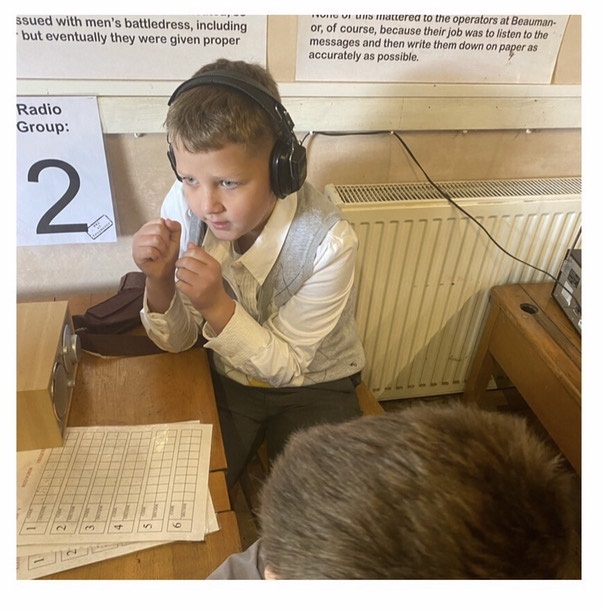
Boys and girls during WWII
Question: “Do you think boys were treated differently to girls during WWII?”
Toby Wayte: “I believe boys were treated differently to girls because girls had to keep their hats on all the time and keep their hair neat.” “Boys had to take off their caps indoors and open doors for women and girls and let the girls leave or enter first.”
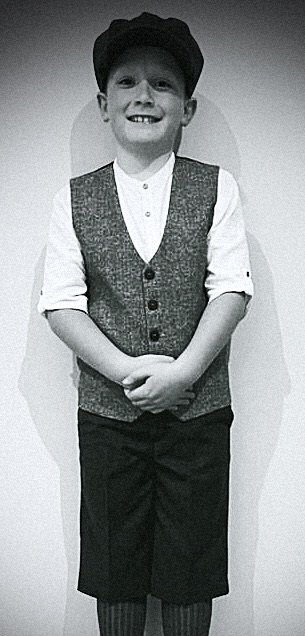
Year 5 comments
Cameron Elliott: “I enjoyed the part of the day when the air raid siren went off and we had to go to the bunker.”
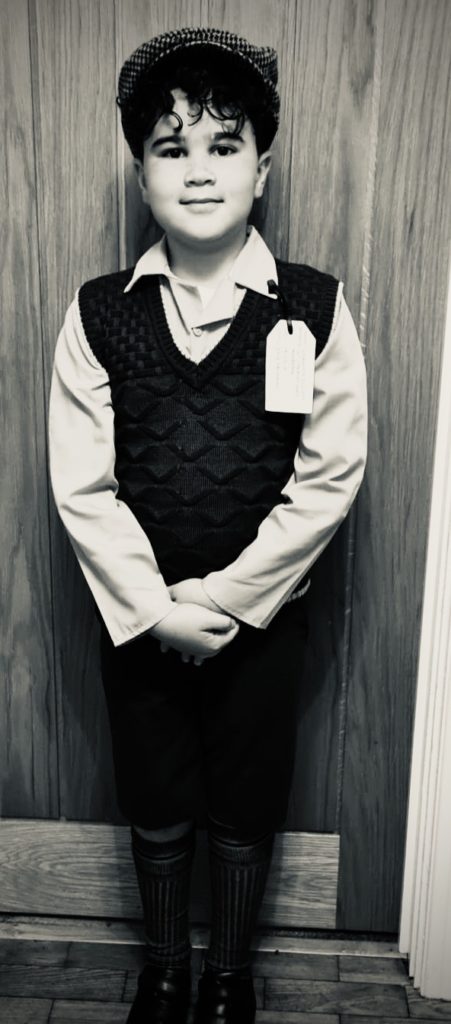
Clark Bessant: “The most important fact I learned was that the rabbit meat wasn’t rationed!” “You could just hunt it down in the forest/woods.”
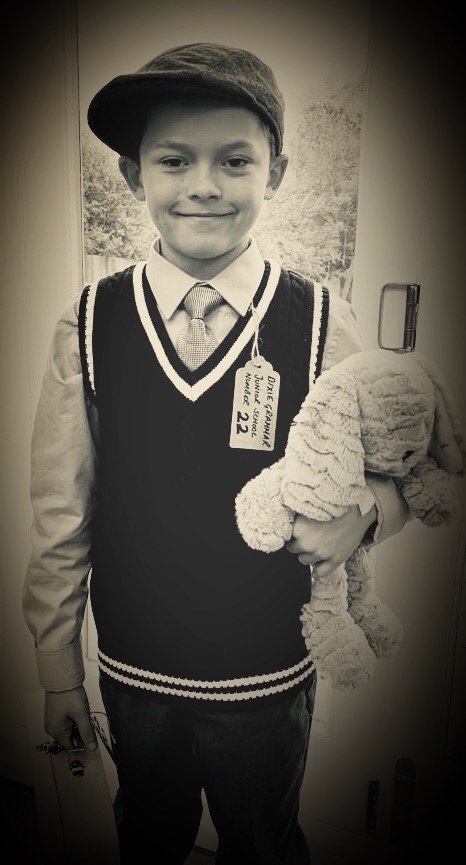
Ruby Millership: “My favourite part of Beaumanor Hall was de-coding the messages.”
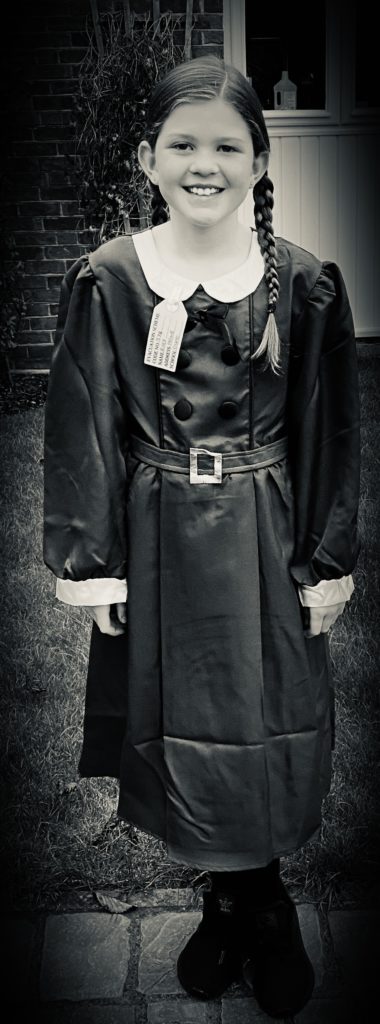
Thank you
We had an amazing day and have learned so many interesting facts about WWII. It was a great experience for us all!
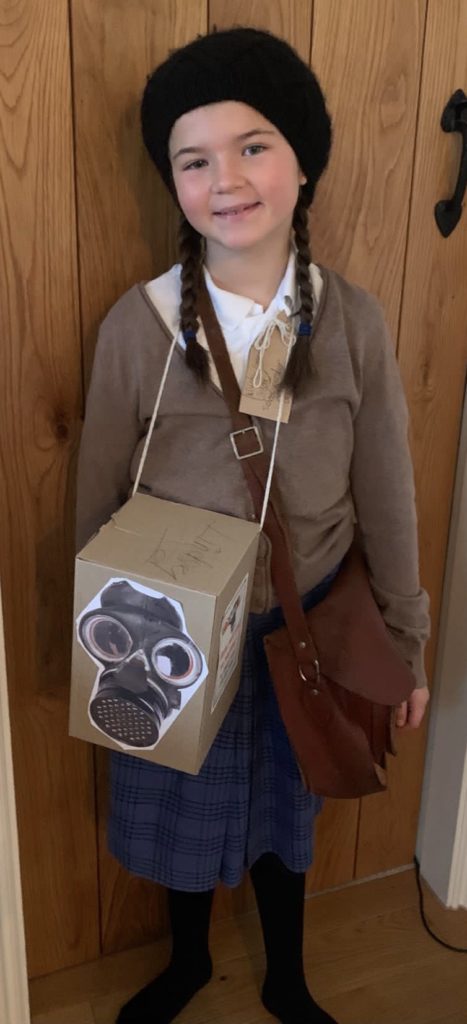
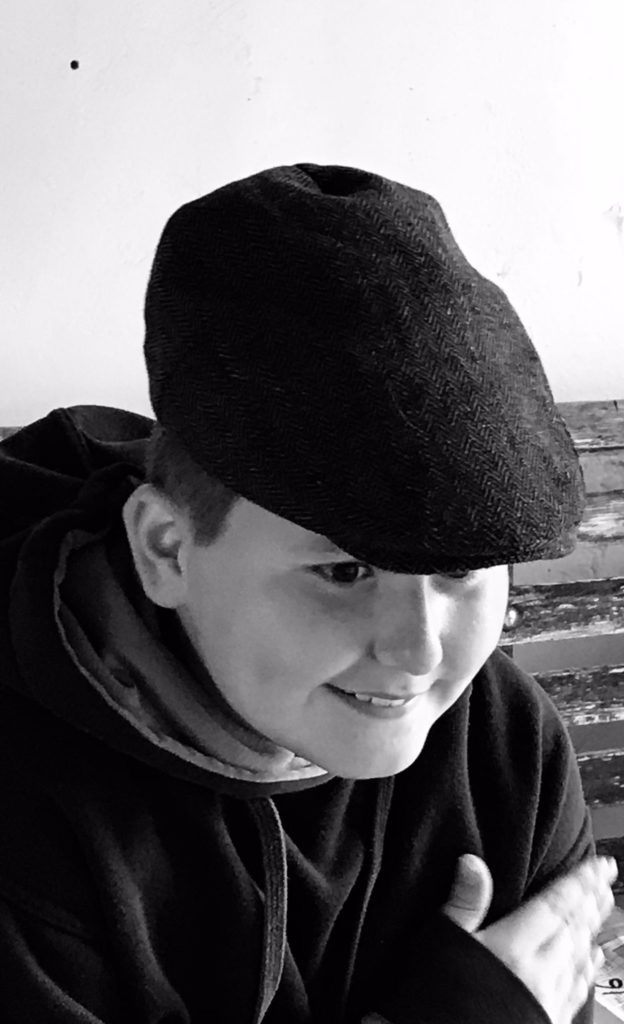
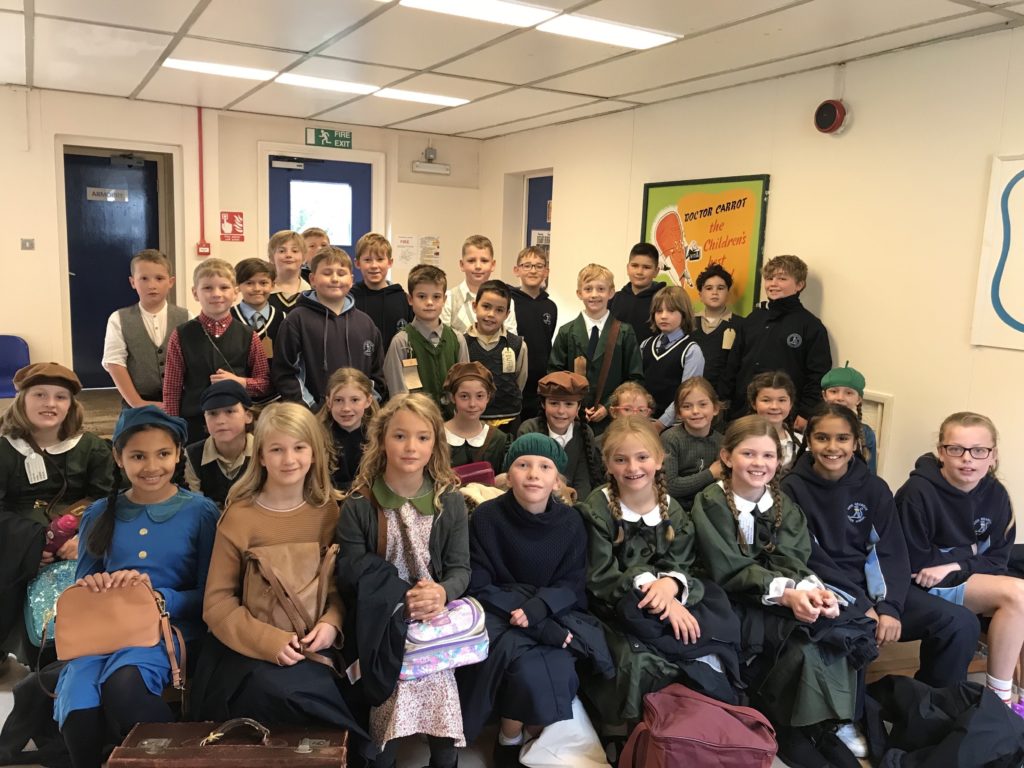
Thank you to our teachers at Dixie Grammar Junior School, and to the staff at Beaumanor Hall for giving us this opportunity to understand more about WWII, and how lives were at this time. This is a trip we will never forget!
Blog by: Savannah Bentley-Showell
Head Girl
